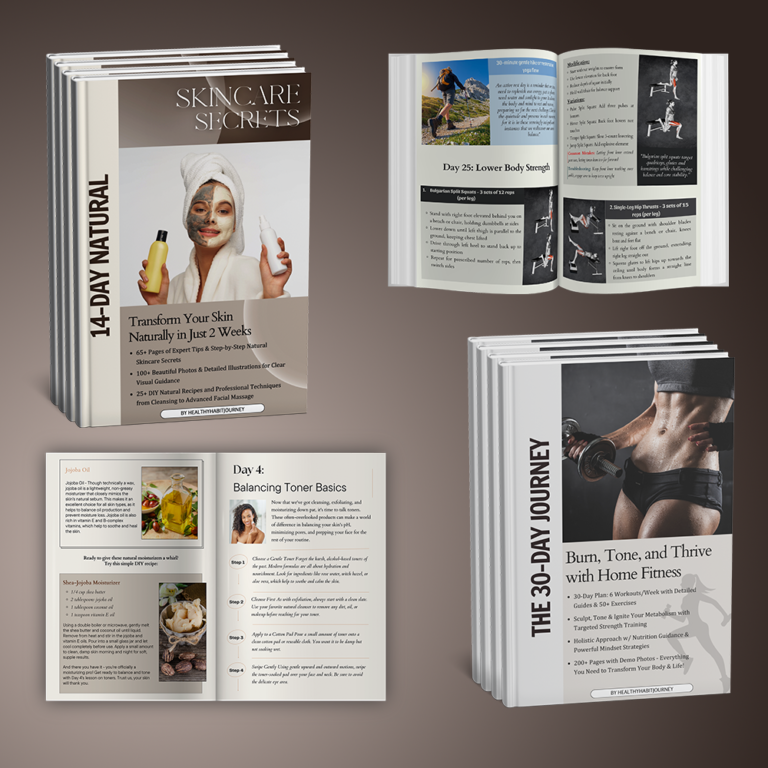Heartbreak. That gut-wrenching, soul-crushing pain that leaves you feeling like your world has shattered into a million pieces. Whether it’s the end of a long-term relationship, an unexpected betrayal, or an unrequited love, the agony of a broken heart can feel all-consuming.
You may find yourself struggling to get out of bed in the morning, your mind replaying painful memories on an endless loop. Even the simplest tasks, like grocery shopping or answering emails, can feel monumentally difficult when you’re weighed down by the heaviness in your chest.
If you’re in the throes of heartbreak right now, I want you to know something important: You are not alone.

Did you know that on average, people experience three significant heartbreaks in their lifetime? A study conducted by the Journal of Positive Psychology found that most adults will have their hearts broken at least twice before finding lasting love.
While this statistic may not erase the pain you’re feeling right now, I hope it offers a small measure of comfort. Heartbreak is a nearly universal human experience—a rite of passage that connects us all. So many incredible women have walked this path before you and emerged on the other side stronger, wiser, and more resilient. And I firmly believe that you will too.
Throughout this article, we’ll explore strategies for navigating the turbulent waters of heartbreak. We’ll validate the complex emotions you may be feeling, offer guidance from experts in the field, and provide tangible steps you can take to begin your healing journey.
Together, we’ll work on mending your beautiful, broken heart and reconnecting with your unbreakable spirit. Are you ready to get started?
I. Understanding the Emotional Journey
1.The 5 Stages of Grief
In her groundbreaking book “On Death and Dying,” Swiss-American psychiatrist Elisabeth Kübler-Ross introduced the now well-known five stages of grief: denial, anger, bargaining, depression, and acceptance. While Kübler-Ross’s work originally focused on terminally ill patients, her model has since been applied to many forms of loss, including the death of a relationship.
As you navigate the aftermath of your heartbreak, you may find yourself cycling through these stages in a nonlinear fashion. One day you may feel consumed by anger, the next you may find yourself slipping back into denial. This emotional rollercoaster is completely normal. Grief is a highly personal experience and there is no “right” or “wrong” way to move through it .
2. It's Okay to Not Be Okay
I want to take a moment to emphasize a crucial point: It’s okay to not be okay right now. So often, society pressures us to “get over” heartbreak quickly, to bounce back to our normal selves as if nothing happened. Friends and family may urge you to “stay positive” or “look on the bright side.” While well-intentioned, this advice can feel invalidating.
It’s important to give yourself permission to feel the full depth of your pain, without judgment or self-criticism. Contrary to popular belief, allowing yourself to fully experience and express your emotions is an essential part of the healing process.
Researcher and author Brené Brown puts it beautifully: “Vulnerability is not winning or losing; it’s having the courage to show up and be seen when we have no control over the outcome.”
So go ahead and ugly cry into your pillow. Scream into the void. Journal pages and pages of raw, unfiltered thoughts. Honor your pain. Validate your own experience.
In doing so, you’re not wallowing—you’re bravely facing your wounds head-on, which is the first step towards authentic healing.
3. Self-Care Strategies
3.1 Prioritize "Me Time"
When you’re in the thick of heartbreak, practicing self-care can feel like the last thing on your mind. But now more than ever, prioritizing your physical, mental, and emotional wellbeing is crucial. Think of self-care as an act of radical self-love, a way of affirming to yourself: “I am worthy of care and compassion, even in my darkest moments.”

3.2 Ideas for Nourishing Self-Care
So what exactly does self-care look like? The specifics will vary from person to person, but here are a few ideas to get you started:
- Take a long, luxurious bath with your favorite essential oils or bath bomb. Light some candles, put on soothing music, and let yourself soak until the water turns tepid.
- Go for a scenic nature walk or hike. Breathe in the fresh air, feel the sun on your face, and let the beauty of your surroundings remind you that there is still goodness in the world.
- Treat yourself to a nourishing meal, either home-cooked or from your favorite restaurant. Savor each bite and express gratitude for the way the food is fueling your body.
- Engage in a creative hobby like painting, poetry, or dance. Channel your emotions into something beautiful and expressive.
- Practice gentle yoga or mindful meditation. Connect with your breath and cultivate a sense of inner peace amidst the chaos.
Remember, self-care isn’t about “fixing” yourself or numbing the pain. It’s about honoring your needs, treating yourself with compassion, and creating moments of joy and relaxation in a challenging season.
3.3 Lean on Your Support System
No matter how independent or self-sufficient you may be, every human needs a support system—especially in times of heartbreak. Friends, family members, therapists, spiritual advisors…these are the people who can offer a listening ear, a shoulder to cry on, or sage words of advice when you need it most.
3.4 How to Ask for Help
I know asking for help can feel vulnerable and uncomfortable, especially if you pride yourself on your strength and resilience. But remember: Reaching out for support is not a sign of weakness—it’s a sign of profound courage.
If you’re unsure how to broach the topic, try starting with a simple, direct statement like:
- “I’m going through a really tough breakup right now and I could really use your support.”
- “Are you available to grab coffee this week? I’m struggling with some heartbreak and would love to talk it out with someone I trust.”
- “I know you went through a difficult breakup last year. Would you be willing to share any advice or insights that helped you cope?”
Most importantly, remember that you are worthy and deserving of love and support, even in your most broken state. Your people want to show up for you—all you have to do is let them.
3.5 Focus on Personal Growth
In the midst of heartbreak, it can feel like your entire identity was wrapped up in your relationship. You may find yourself wondering, “Who am I without this person by my side?” While this question can feel daunting, it also presents an incredible opportunity for self-discovery and personal growth.
3.6 Rediscovering Your Passions
Think back to the hobbies, interests, and passions that lit you up before your relationship. Perhaps you loved to paint but put down the brushes when your partner’s schedule got busy. Maybe you used to take solo trips but stopped when you coupled up.
Now is the time to reconnect with those parts of yourself that may have gotten lost in the shuffle of your relationship. Sign up for that pottery class you’ve been eyeing. Dust off your hiking boots and hit the trails. Book a weekend getaway to a city you’ve always wanted to explore.
As you rekindle your passions and try new things, you’ll slowly start to rediscover your sense of self outside of your past relationship. You’ll remember that you are a whole, vibrant person in your own right—someone with a rich inner world and boundless potential.
Focusing on personal growth won’t erase the pain of your heartbreak overnight. But little by little, it will help you rebuild a strong, solid foundation within yourself—a foundation that no external circumstance can shake.

Beauty & Fitness Guides: Your Complete Wellness Ebooks
II. Expert Insights
The Science of Heartbreak
1. Envisioning a Brighter Future
When you’re in the thick of heartbreak, it can be difficult to imagine a future that doesn’t include your ex. But I promise you, that future exists—and it’s even brighter than you can currently envision.
Take some time to daydream about the life you want to create for yourself. What new hobbies do you want to explore? What trips do you want to take? What kind of love do you want to attract? Allow yourself to get excited about the possibilities that lie ahead. Embrace the unknown and trust that wonderful things are in store.
2. Opening Your Heart Again
I know the idea of falling in love again may feel daunting, especially when your heart is still tender from your last relationship. But I want to offer you this gentle reminder: Your heartbreak is not a life sentence. You have so much love left to give and receive.
When the time is right, you will open your heart again—and it will be even more beautiful because of the resilience you’ve developed.
In the meantime, focus on falling in love with yourself. Cultivate a relationship with your own heart. Treat yourself with the same tenderness and care you would offer a partner.
As you heal and grow, you’ll naturally start to attract people who are aligned with your authentic self. You’ll form connections based on mutual respect, shared values, and genuine appreciation.
And who knows? One of those connections may just blossom into the kind of love you’ve always dreamed of.
Conclusion
Your Unbreakable Spirit
Sweet friend, I know the road you’re walking right now is not an easy one. Heartbreak can feel like a heavy load to carry, and some days, putting one foot in front of the other may take every ounce of strength you have.
But I want you to know that you are not defined by this painful chapter. Your story is so much bigger than this one relationship, this one season of sorrow.
Within you lies an unbreakable spirit—a spirit that has weathered countless storms and emerged even stronger. A spirit that knows how to love deeply, grieve fully, and begin again.
Onward and Upward
As you continue on your healing journey, be patient with yourself. Honor your unique timeline and trust that you are exactly where you need to be.
On the days when your grief feels overwhelming, remember that healing is not a linear process. It’s okay to take two steps forward and one step back. It’s okay to have moments of sadness, even as you start to feel joy again.
Most importantly, remember that you are not alone. An entire community of women stands beside you, ready to offer support, encouragement, and virtual hugs whenever you need them.
Together, we will help you mend your broken heart and reconnect with your unbreakable spirit. Together, we will watch you rise from the ashes of this heartbreak and create a life even more beautiful than the one you had before.
Onward and upward, dear one. The best is yet to come.
FAQ
- How long does it take to heal from heartbreak? There is no set timeline for healing from heartbreak. The process is different for everyone and can be influenced by factors like the length of the relationship, the circumstances of the breakup, and one’s support system. Focus on honoring your own unique journey rather than comparing yourself to others.
- Is it okay to still love my ex? Yes, it’s completely normal to still have feelings of love for an ex, especially in the early stages of a breakup. Love doesn’t just disappear overnight. Be patient with yourself as you work on untangling those feelings and remember that loving someone doesn’t necessarily mean you’re meant to be together.
- What if I’m not ready to start dating again? There’s no rush to start dating again after a breakup. In fact, taking time to focus on self-love and personal growth can be incredibly beneficial. Trust your own intuition and only start dating when it feels authentic and exciting to you, not because you feel pressured by external timelines.
- How do I know if I’m making progress in my healing? Progress in healing often looks like having more good days than bad, feeling excited about the future, and being able to think about your ex with a sense of peace and acceptance rather than intense pain. It’s also normal to have setbacks along the way. Be kind to yourself and celebrate every small victory.
- What if I need more support? If you’re struggling to cope with heartbreak on your own, don’t hesitate to reach out for professional support. Therapy can be an incredibly valuable tool for processing grief, building self-esteem, and developing healthy coping mechanisms. Many therapists offer sliding scale fees or virtual sessions to make support more accessible.



